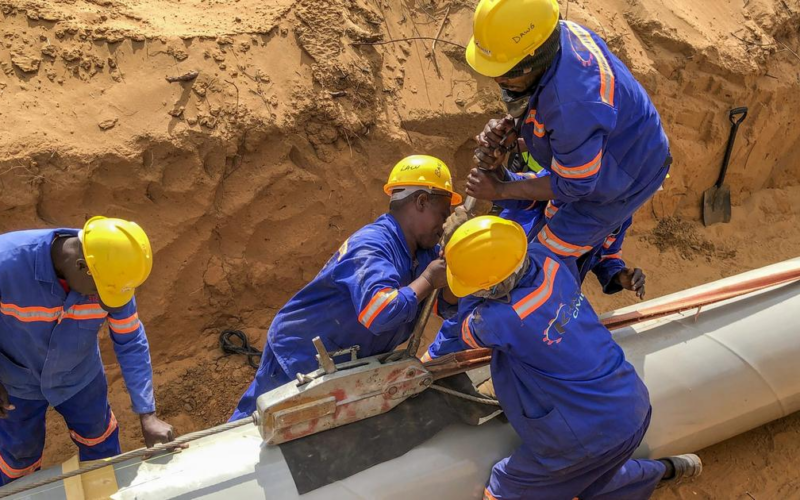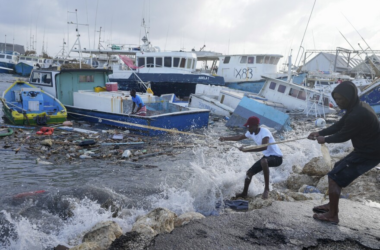Niger’s military government has verified the sabotage of an oil pipeline that transports crude oil to Benin. The attack was carried out by a rebel group advocating for the release of the country’s imprisoned president.
The incident occurred during the night of June 16-17, when “malicious individuals sabotaged part of the pipeline in the Tesker department,” according to a report by Niger’s public broadcaster, Tele Sahel, on Friday evening.
Zinder region’s governor, Colonel Issoufou Labo, stated that authorities have collected information and evidence concerning the alleged perpetrators and vowed that all involved would be apprehended and prosecuted for their “terrorist act.” Public prosecutor Ousmane Baydo confirmed that the responsible group had already claimed credit for the attack.
The Patriotic Liberation Front (FPL), a rebel movement formed in August 2023 following the overthrow of President Mohamed Bazoum, claimed responsibility for the sabotage. The FPL’s leader, Mahamoud Sallah, indicated that the pipeline was targeted as a message to Niger’s military generals and demanded the release of the democratically elected president, who has been detained since the July 26 coup. Sallah also urged the Chinese companies managing the pipeline, WAPCO and the China National Petroleum Corporation, to cease funding Niger’s military regime.
The attack resulted in a significant oil spill, with images from Tele Sahel showing crude oil spread over 370 meters (1,200 feet) in the bush. This incident has disrupted the pipeline, which is crucial for Niger’s oil exports via Benin’s Atlantic port of Seme-Kpodji.
The pipeline, essential for the economies of both Niger and Benin, is facing threats not only from the FPL but also from other violent groups. Just days before the sabotage, on June 12, six Nigerien soldiers were killed by “armed bandits” in what was the first attack on the pipeline’s security detail.
The pipeline’s vulnerability and its importance have escalated tensions between Niger and Benin, exacerbating the diplomatic strain following the coup that ousted President Bazoum. The ongoing instability in the region highlights the challenges facing Niger’s military rulers as they grapple with internal rebellion and external threats to critical infrastructure.








